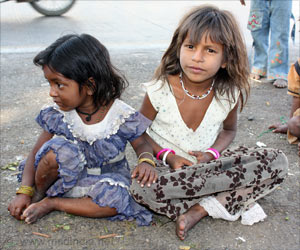The 33-year-old married woman from Chandigarh had never imagined that her excessive clubbing and partying would one day push her to the brink of suicide.

What started for both the Bacchus lovers as socializing, ended up in drink dependence and pushed them into the infamous club of over 14 million alcohol consumers in the country who require help. Though there are no exact figures of how many of these are women, the trend is clear.
The Mumbai woman ran up a debt of Rs25 lakh (Rs2.5 million) and attempted suicide due to her "unmanageable" life and depression. The Chandigarh woman showed addiction- related suicidal tendencies after a turbulent married life, extra-marital affairs and a failed patch-up bid with her husband.
The two are now trying to get a grip over their lives and move away from drink dependence, with some help from de-addiction experts who say they needed to be cared like brain patients who don't know how to prevent themselves from returning to the old habit despite being aware of its perils.
But their difficult phase is over, says NGO Tulasi Home's consultant doctor Goruv Gupta. "Realizing or accepting that one needs help is the toughest part of getting over the drink dependence problem."
Sociologist Sachin Kumar, associated with Alcoholics Anonymous, told IANS: "Intoxication by women in some communities has existed for time immemorial. Traditionally, it has been a collective activity but in modern times the incidence of individual drinking has shown a rise."
Advertisement
According to a 2009 article in journal The Lancet, Indians, officially, are still among the world's lowest consumers of alcohol - government statistics show only 21 percent of adult men and around two percent of women drink. But up to a fifth of this group - about 14 million people - are dependent drinkers requiring "help".
Advertisement
For women drinkers, the news is worse than for men.
Gupta warned that alcohol addiction was more harmful for a woman's body as compared to a man; in a woman, alcohol tends to induce permanent hormonal changes in the body, making rehabilitation more difficult.
The problem of shortage of de-addiction centers was also more acute for women.
Ruchika Kumari, who works at several private de-addiction centers in Delhi, agreed: "Alcohol addiction is considered to carry a bigger social stigma for women as compared to men and the challenge of weaning away is tougher for them due to shortage of fully-equipped centers."
"Families need to leave the women dependent drinkers at deaddiction center's for medical aid and counseling and this needs a lot of faith in the facility," she said.
"Most people prefer private facilities as they score over the government sector in terms of security, hygiene and quality of treatment."
She revealed that there was no particular age bracket for women drinkers. "At our center in south Delhi, we have women from 48 years to 28 years seeking counseling."
The service that private centers offer to get rid of dependence comes at a price.
A six-week rehabilitation procedure in some of the high-end centers in Delhi costs around Rs1 lakh (Rs100,000). In Delhi alone there are over three dozen NGO-run, private and government facilities that offer help to people with drink dependence.
Gupta warned against ill-trained quacks offering help to dependent drinkers and ending up traumatizing the patient.
"I have seen a case where a patient was sent by his family to a private facility in Haryana and there he was tortured, stripped and humiliated in the name of de-addiction," he said.
Source-IANS















